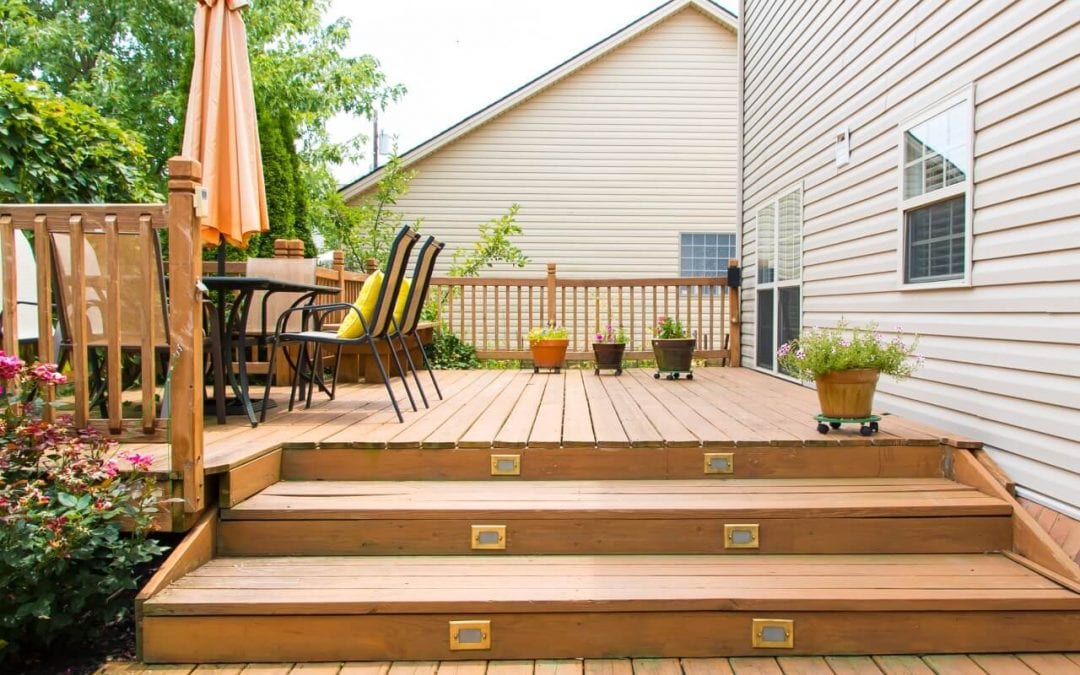When it’s time to build or replace a deck, homeowners have plenty of options of building materials. You’ll look at your budget, but you also want to take into account installation and maintenance requirements when choosing materials for your new deck.
Natural Wood Options
Natural wood is attractive, strong, and easy to install. These benefits make it one of the most commonly used types of decking material. You can choose a wood like redwood or cedar, which naturally resists insects and lasts around 20 years.
Tropical Hardwood Materials for Your New Deck
Some people opt for tropical hardwoods, which naturally resist insects and decay and can last between 25 and 50 years. Tropical hardwood is a good option for those homeowners who are eco-conscious because they don’t need chemical treatment. However, these decking materials are expensive. Ipe and other dark-colored tropical hardwoods are less ideal in sunny locations because they will become quite hot. The hardness of tropical wood means you must drill holes to use fasteners. That same hardness also means the wood resists stains and sealers. They are heavy and difficult to install.
Pressure-Treated Wood
Wood that has been pressure-treated can last 15 years and is more affordable than other types of decking materials. You can easily use screws or nails when working with this material. However, most pressure-treated wood is yellow pine, which is known for splintering if not properly maintained. Because of the chemicals in pressure-treated lumber, you won’t want to burn scraps in the fire pit. It needs to dry out about 6 months before being stained. Like natural wood, it requires periodic painting or re-staining.
Composite Decking
This type of decking material combines plastic and wood fibers to create material that doesn’t need to be stained and will not splinter. You can choose from various shades and textures. Engineered composite decking has grooves on the underside to make it lighter and hide fasteners from sight. Composite decking requires special fasteners to prevent bulges from forming. Some composite has a different texture on each side and must be installed with the correct side facing up. Composite materials may mold or mildew over time.
Materials for Your New Deck: Aluminum
While other types of decking materials are more common, there are benefits to an aluminum deck. First, it won’t splinter or crack. It’s resistant to insects. Rust is also not an issue with aluminum. Aluminum decks won’t fade or peel and you don’t have to worry about mold and mildew. If you are on a tight budget, aluminum may not be the right choice for you because it is pricey. These decks are noisier than wood or composite decks and aluminum can become slippery when wet.
Quality Check Home Inspections offers home inspection services to Eugene, the Oregon Coast, and the surrounding areas. If you’re buying or selling a home, contact us to schedule an appointment.

